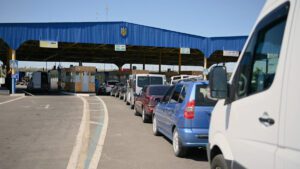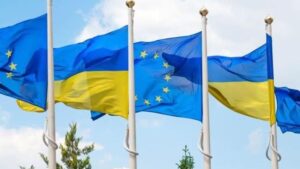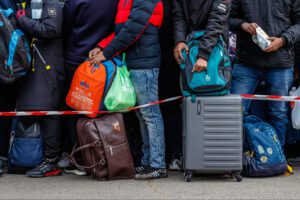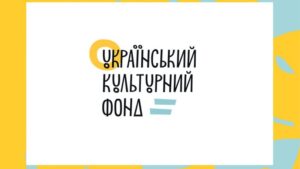
Ukraine plans to develop the Open Border project at border crossings with Slovakia, Hungary, Romania and Moldova.
“We are also implementing similar projects to increase capacity at the borders with other Western neighbors. We are already negotiating to join the Open Border of Slovakia, Hungary, Romania and Moldova,” Ukrainian Infrastructure Minister Oleksandr Kubrakov was quoted as saying in a Facebook post on Monday.
As reported earlier, Ukraine and Poland doubled the throughput at the Krakovets-Korcheva checkpoint modernized as part of the Open Border project.

ADONIS medical group of companies will relocate a family-type maternity hospital located in the left-bank part of Kyiv due to non-renewal of the lease of the premises.
“The circumstances under which we are forced to relocate the maternity hospital do not depend on us. The owner of the building did not renew the lease of the premises, and therefore we are forced to leave it before the end of the week,” the medical group said.
CIM ADONIS clarifies that the full complement of medical teams work in the maternity hospital in Sofiyivska Borshchagovka.
“All patients who have entered into obstetric agreements with Adonis Center LLC in connection with these circumstances will receive obstetric services at the clinic in Sofiyivska Borshchagovka. ADONIS ambulance transportation is free and round-the-clock (including during curfew hours)”, – specified by the company.
The clinic reported that over the years of operation of the maternity hospital on the left bank, more than 800 babies were born.
As reported, ADONIS International Group of Companies opened a family-type maternity hospital on Sofiyivska Borshchagovka.
ADONIS is a network of private medical centers for adults and children founded over 20 years ago. It includes 12 branches in Kyiv and the region, including two own maternity hospitals and a stem cell laboratory.
In the branches of the clinic, doctors receive patients in 66 medical areas.
CLINIC, MATERNITY HOSPITAL, SOFIYIVSKA BORSHCHAGOVKA, АДОНИС

Ukraine’s anti-money laundering legislation partially complies with the standards of the Financial Action Task Force (FATF) and international legislation, but the recommendations of the Council of Europe’s Committee of Experts on the Evaluation of Money Laundering Measures (Moneyval) still remain unfulfilled , says the European Commission.
“Further reforms are needed to improve Ukraine’s compliance with FATF standards, in particular those relating to virtual assets, ultimate beneficial ownership and supervision of non-banking enterprises and transactions,” the European Commission’s Opinion on Ukraine’s application for membership in the European Union states.
It states that for these reasons, Ukraine is still reporting to Moneyval in accordance with the enhanced control procedure.
The European Commission also pointed to the need for more progress in investigating and prosecuting major money laundering schemes.
“Establishing a comprehensive framework for combating financial crime and money laundering and ensuring its effective implementation is critical to addressing the significant risks they pose,” the Opinion notes.
With regard to the established National Agency of Ukraine for the identification, search and management of assets obtained from corruption and other crimes (ARMA), it is indicated that since the end of 2019 it has not had a permanent head.
“Legislation regarding the management of seized assets should be improved and an appropriate national strategy for the return of assets should be adopted,” the European Commission believes.

The number of refugees from Ukraine registered for temporary protection or similar national protection schemes in Europe stood at 3.207 million as of June 16, 2022, the Office of the United Nations High Commissioner for Refugees (UNHCR) reported on its website.
Compared to the June 1 data, the increase was almost 0.5 million, including 0.2 million in the last week, significantly contributed by data updates in Germany, France and the UK.
According to UNHCR data collected from national governments, the largest number of refugees with temporary protection status in Poland is 1 million 169.5 thousand, while 4,166 arrived in the country from Ukraine, according to the Polish border service, from the beginning of the war to June 18 million people, and 2.195 million went to Ukraine in the opposite direction.
Following are Germany and the Czech Republic, where the number of refugees registered for temporary protection from Ukraine amounted to 641.39 thousand and 373.82 thousand, respectively.
The UN, referring to government data, indicates that in total in Germany, where Ukrainians are allowed to stay without registration until the end of August, 780,000 refugees from Ukraine were recorded. Based on the data presented, a significant proportion of them have not yet applied for temporary protection status in that country.
In the Czech Republic, the situation, according to UN information, is different: almost all arrivals applied for protection status – 373.82 thousand out of 373.97 thousand.
In the vast majority of other countries, the picture is similar to the Czech Republic: the statistics of registered refugees is completely or almost equal to the statistics of those who applied for protection status, which is probably due to the peculiarity of their registration. An exception, similar to Germany, is only Romania – 37.83 thousand with the status of 90.3 thousand refugees registered in the country, Estonia – 27.49 thousand out of 42.26 thousand and Italy – 97.31 thousand out of 129 .62 thousand
In addition to Poland, the Czech Republic, Germany and Italy, more than 50 thousand refugees from Ukraine have also registered for the status of temporary protection in Spain – 119.74 thousand, France – 87.97 thousand, Slovakia – 78.11 thousand (out of 270 thousand). net inflow across the border since the beginning of the war), Austria – 71.83 thousand, Great Britain – 70.5 thousand, the Netherlands – 64.48 thousand and Switzerland – 55.92 thousand.
At the same time, in Lithuania, the number of refugees with temporary protection status decreased from 53.89 thousand to 46.55 thousand over the week.
Next come Belgium – 46.85 thousand, Portugal – 42.15 thousand, Sweden – 38.05 thousand, Ireland – 36.91, Denmark – 28.29 thousand, Latvia – 26.8 thousand and Finland – 26.75 thousand, as well as the above-mentioned Romania and Estonia.
From 10 to 25 thousand refugees from Ukraine with the status of temporary protection in Hungary – 24.45 thousand, Norway – 18.51 thousand, Greece – 14.89 thousand, Croatia – 14.26 thousand and Cyprus – 13 .05 thousand
In addition, the UN statistics on those who received the status of temporary protection include Ukrainian refugees in Slovenia – 7.1 thousand, Luxembourg – 5.25 thousand, Montenegro – 3.98 thousand, Iceland – 0.9 thousand, Malta – 0 .92 thousand, in Serbia and Kosovo – 0.75 thousand and Liechtenstein – 0.22 thousand.
In addition, the table contains data from Bulgaria, possibly entered with an error: according to them, 79.2 thousand refugees from Ukraine were recorded there, but 114.88 thousand received protection status.
The UN also indicated the countries in which refugees from Ukraine were recorded, but there is no data on their obtaining status: Moldova – 85.5 thousand, Georgia – 20.39 thousand, Azerbaijan – 4.84 thousand, Albania – 1.53 thousand, North Macedonia – 1.21 thousand, Armenia – 0.49 thousand and Bosnia and Herzegovina – 0.33 thousand.
Turkey, where 145,000 refugees from Ukraine were listed a week ago, is now excluded from the data.
Separately, it is worth mentioning Russia and Belarus, the Ukrainian border with which, respectively, 1 million 230.8 thousand and 16.66 thousand people crossed. The UN information indicates that in the Russian Federation all those who crossed the border were recorded, while in Belarus – 9.01 thousand. There is no data on any status of these people, as well as data on crossing the border of Ukraine in the opposite direction.

The Verkhovna Rada has simplified the mechanism for financing the current activities of the Ukrainian Cultural Foundation (UKF) and its experts during martial law.
The adoption of the relevant bill No. 7417 as a basis and in general was supported by 313 people’s deputies at the plenary session on Sunday, Yaroslav Zheleznyak, a member of the Voice faction, said in his telegram channel.
According to the explanatory note, in connection with the introduction of martial law in Ukraine, the fund’s expenses in 2022 were reduced by 90%. The authors of the document note that the bill provides for the removal of the current restriction on financing the activities of the UKF in 16% of the annual income of the fund.
This will ensure the proper organization and stabilization of the activities of the UKF, will prevent the dismissal of employees and a complete halt in the activities of the fund, which plays an important role in the development of culture and creative industries in Ukraine. In particular, it is required to simplify the mechanism for financing the current activities and logistics of the UKF, the activities of its expert councils during martial law.
FINANCING MECHANISM, PARLIAMENT, UKRAINIAN CULTURAL FOUNDATION

Since Monday morning, June 20, vehicular traffic has resumed on the Metro and Paton bridges in Kyiv, Mayor of the capital Vitaliy Klitschko said.
“Darnitsky, Severny, Yuzhny, Metro and Patona will operate for auto communication between the left and right banks of the capital. The city authorities will additionally inform about the organization of public transport, taking into account the resumption of traffic on bridges,” he wrote in the Telegram channel.
Klitschko also called on drivers to comply with traffic rules, speed limits, and give preference to ambulances, police cars, rescuers and humanitarian aid vehicles.
BRIDGES, CAR TRAFFIC, KYIV, METRO, ПАТОН